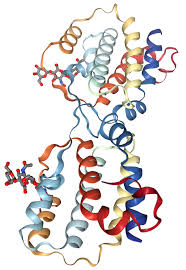Blog Post
Decoding Interleukin-40: Exploring a Lesser-Known Cytokine in Immune Regulation
In the realm of immunology, cytokines play pivotal roles in orchestrating immune responses and maintaining homeostasis within the body. One such cytokine that has garnered attention for its intriguing functions is Interleukin-40 (IL-40). Despite being less studied compared to its counterparts, IL-40 exhibits unique properties that contribute to immune regulation and disease pathogenesis. Let’s delve into the depths of IL-40 and unveil its significance in the complex landscape of immunity.
Understanding Interleukin-40 (IL-40)
IL-40 belongs to the family of interleukins, which are signaling proteins crucial for communication between immune cells. While IL-40’s exact mechanisms and functions are still being elucidated, emerging research suggests several key aspects:
- Modulation of Immune Responses: IL-40 is believed to play a role in modulating immune responses, potentially influencing the activation and differentiation of immune cells such as T cells, B cells, and macrophages.
- Inflammatory Regulation: Like many cytokines, IL-40 may participate in the regulation of inflammatory processes, balancing pro-inflammatory and anti-inflammatory signals to maintain immune homeostasis.
- Tissue-Specific Effects: Some studies suggest that IL-40 may have tissue-specific effects, exerting different functions depending on the microenvironment and cell types present in various tissues.
- Disease Associations: While direct links to specific diseases are still being explored, IL-40’s expression patterns and interactions with other cytokines implicate its involvement in autoimmune disorders, inflammatory conditions, and possibly cancer immunity.
Potential Implications in Health and Disease
The exploration of IL-40’s functions holds promise for several areas of immunology and clinical medicine:
- Autoimmune Disorders: Understanding IL-40’s role in immune dysregulation may shed light on novel therapeutic targets for autoimmune diseases such as rheumatoid arthritis, multiple sclerosis, and psoriasis.
- Inflammatory Conditions: IL-40’s influence on inflammatory pathways could have implications for managing chronic inflammatory conditions, offering new avenues for treatment strategies.
- Cancer Immunology: Given cytokines’ significance in tumor microenvironments, IL-40’s impact on immune cell behavior and anti-tumor responses warrants investigation in the context of cancer immunotherapy.
Challenges and Future Directions
Despite its potential, IL-40 research faces challenges such as limited availability of specific reagents, the need for comprehensive functional studies, and the complexity of immune interactions involving multiple cytokines. Future directions in IL-40 research may involve:
- Mechanistic Studies: Unraveling the precise mechanisms of IL-40 signaling and its interactions with other immune molecules to delineate its functions and regulatory pathways.
- Clinical Relevance: Translating basic IL-40 research into clinical applications, including biomarker discovery, therapeutic targeting, and personalized medicine approaches.
- Collaborative Efforts: Collaborative initiatives among researchers, clinicians, and biotech companies to accelerate IL-40-related discoveries and therapeutic developments.
Conclusion
Interleukin-40 represents a compelling area of study within immunology, holding promise for uncovering new facets of immune regulation and disease mechanisms. As research progresses and our understanding of IL-40 deepens, it may emerge as a significant player in shaping future immunotherapies and precision medicine strategies.


